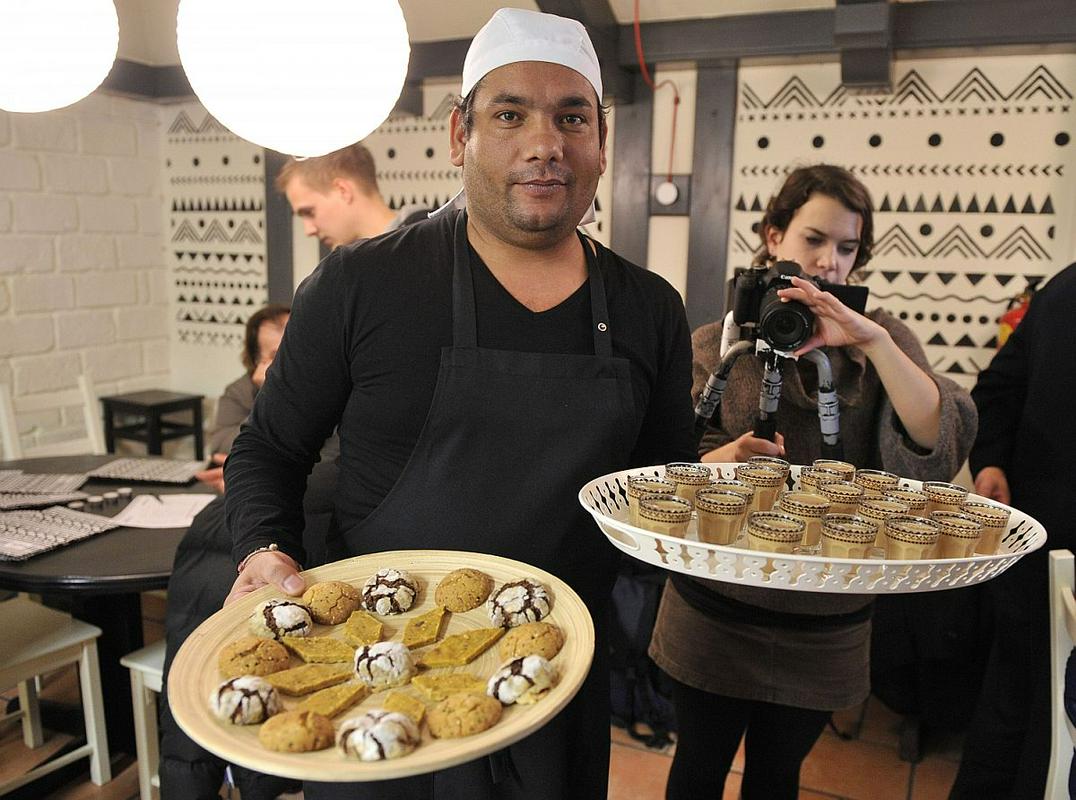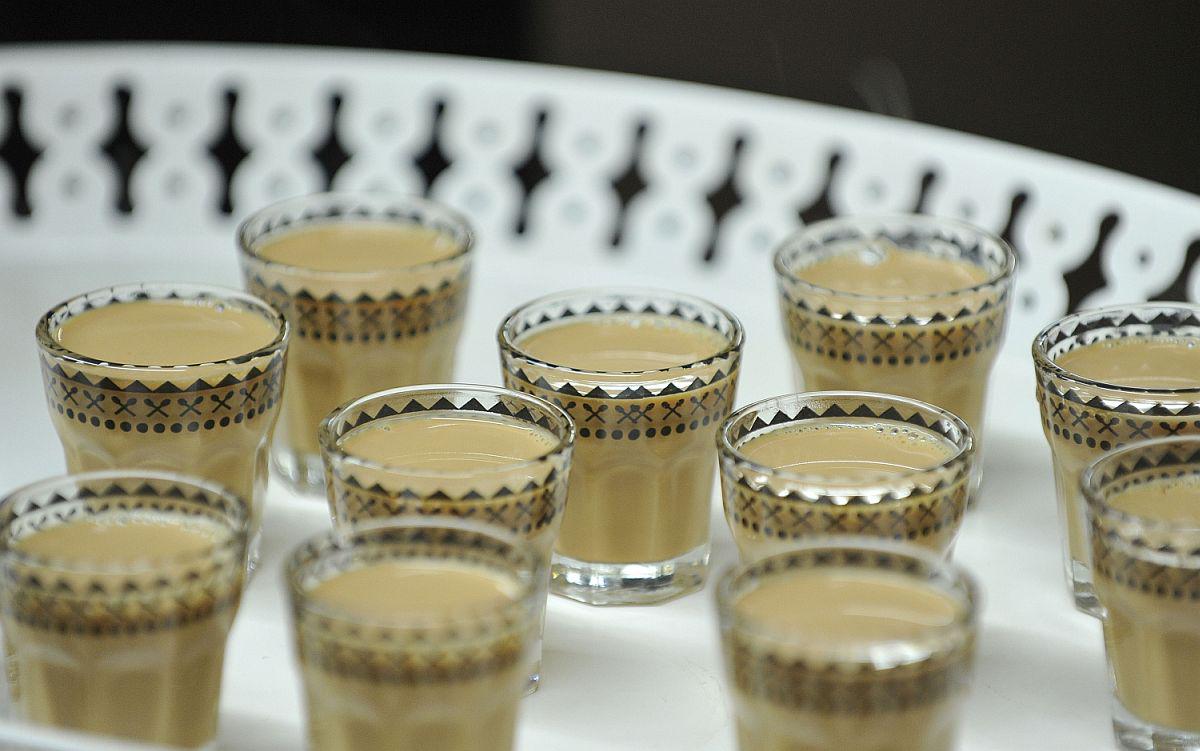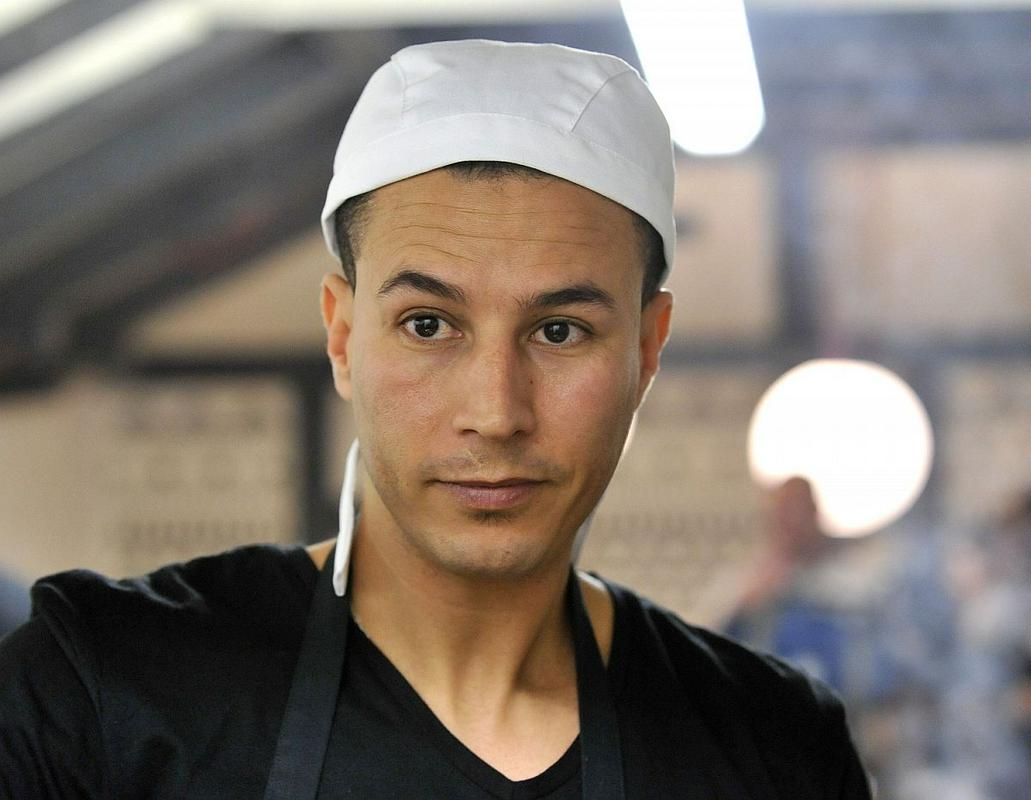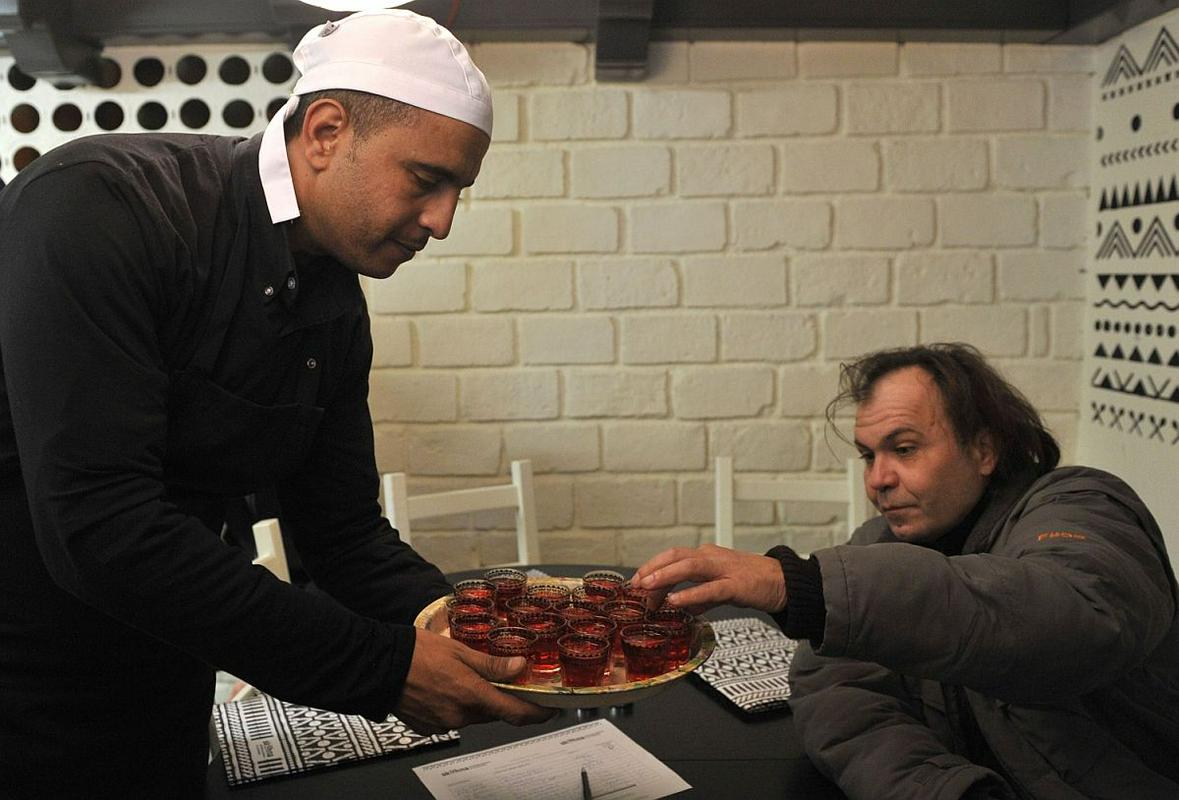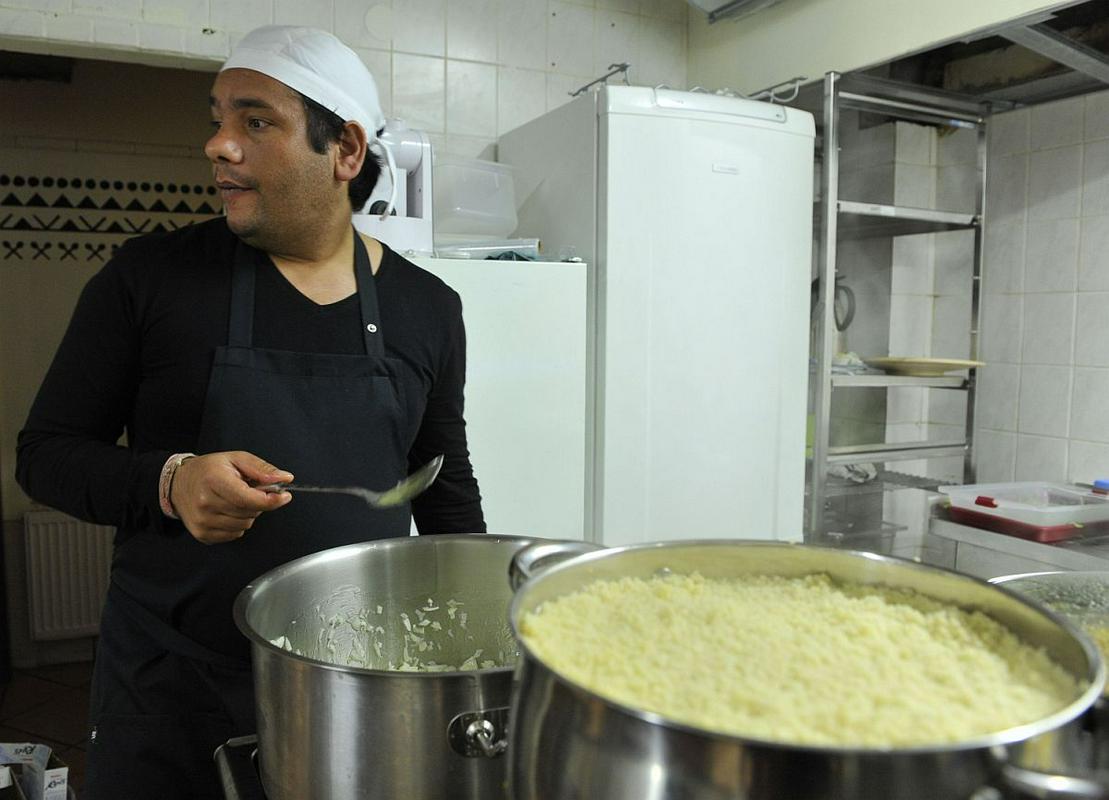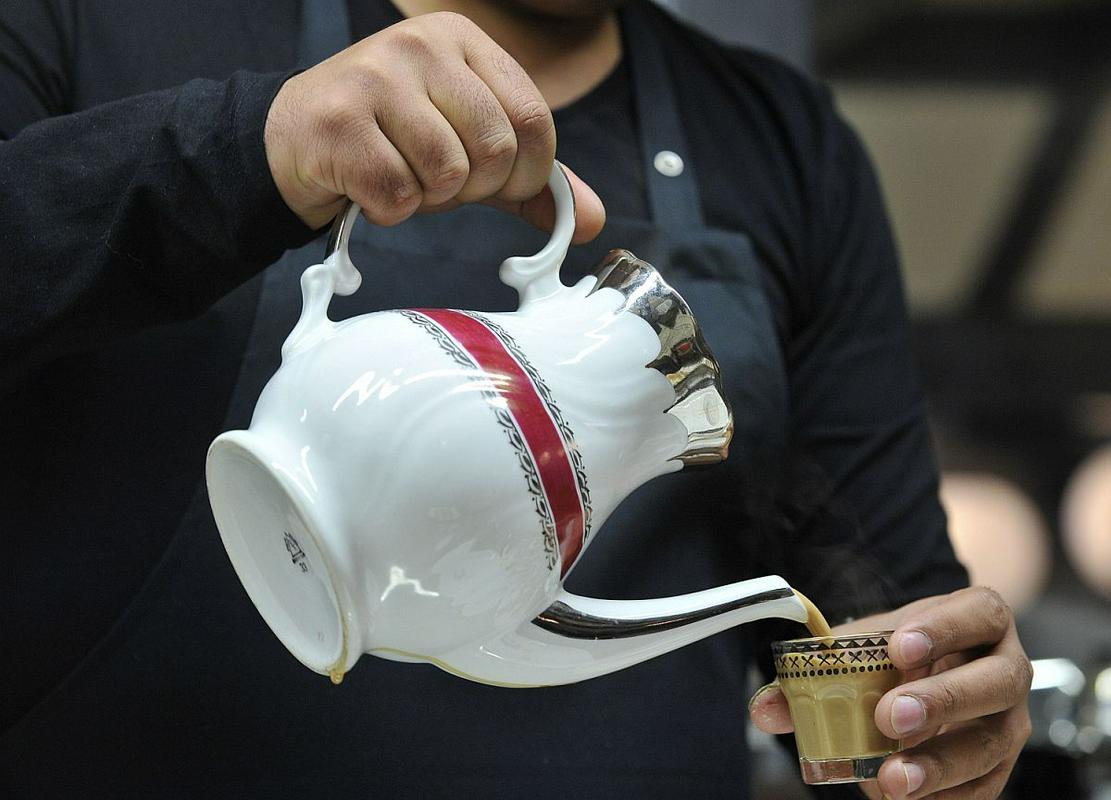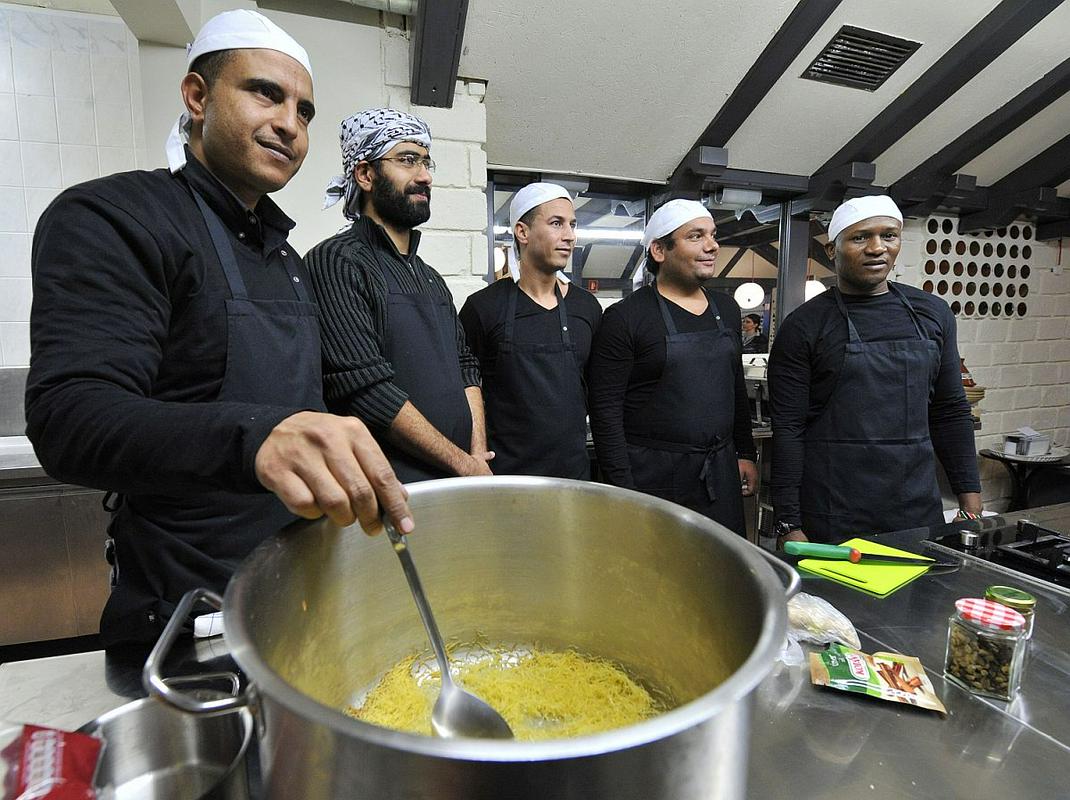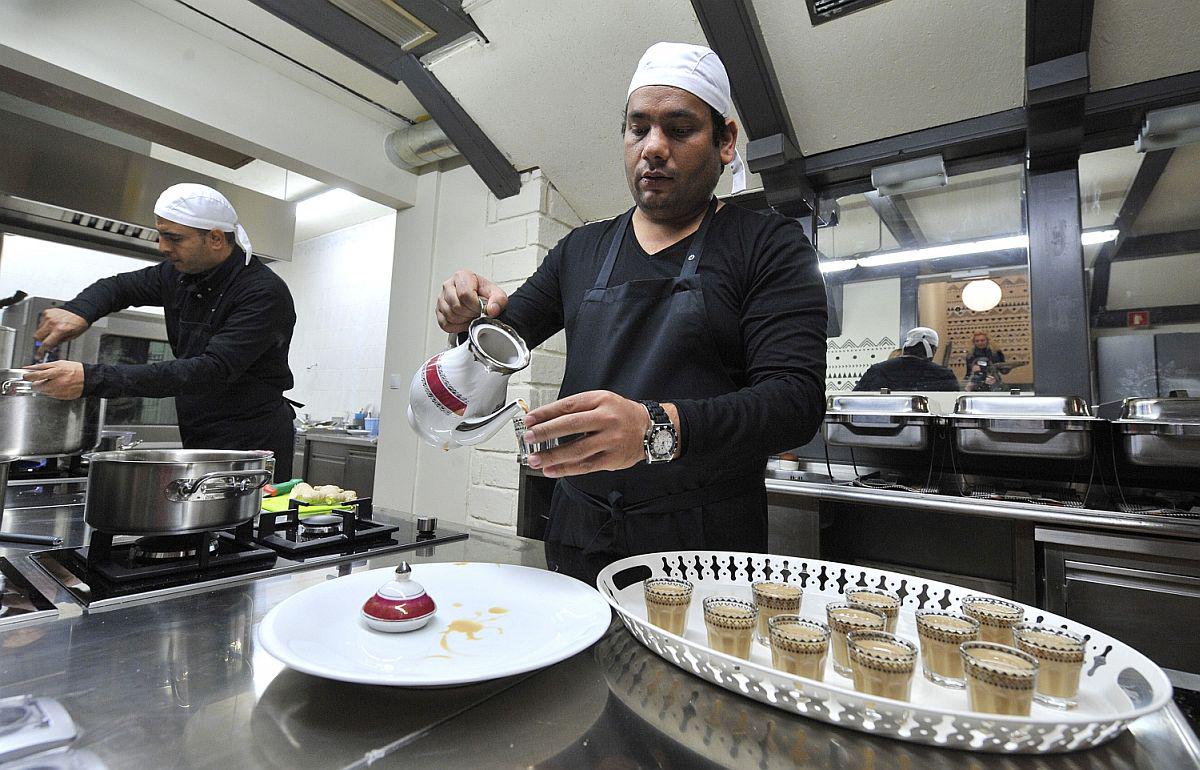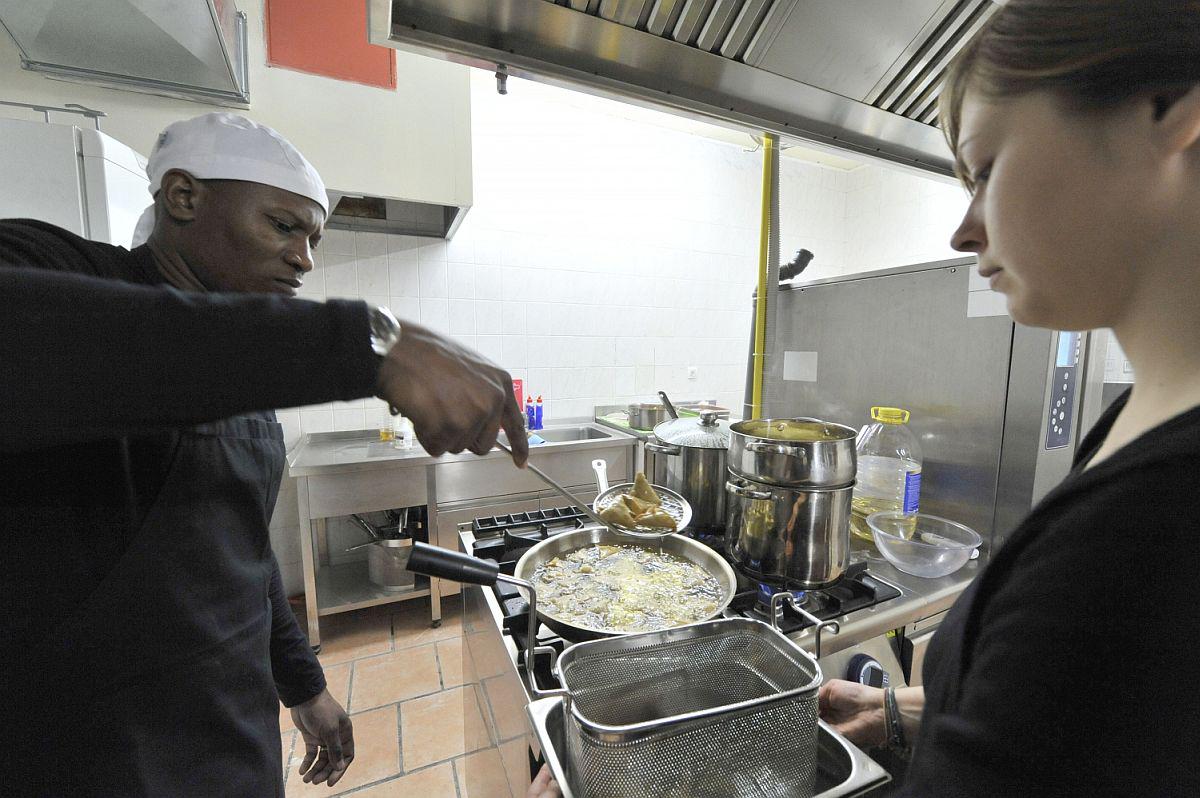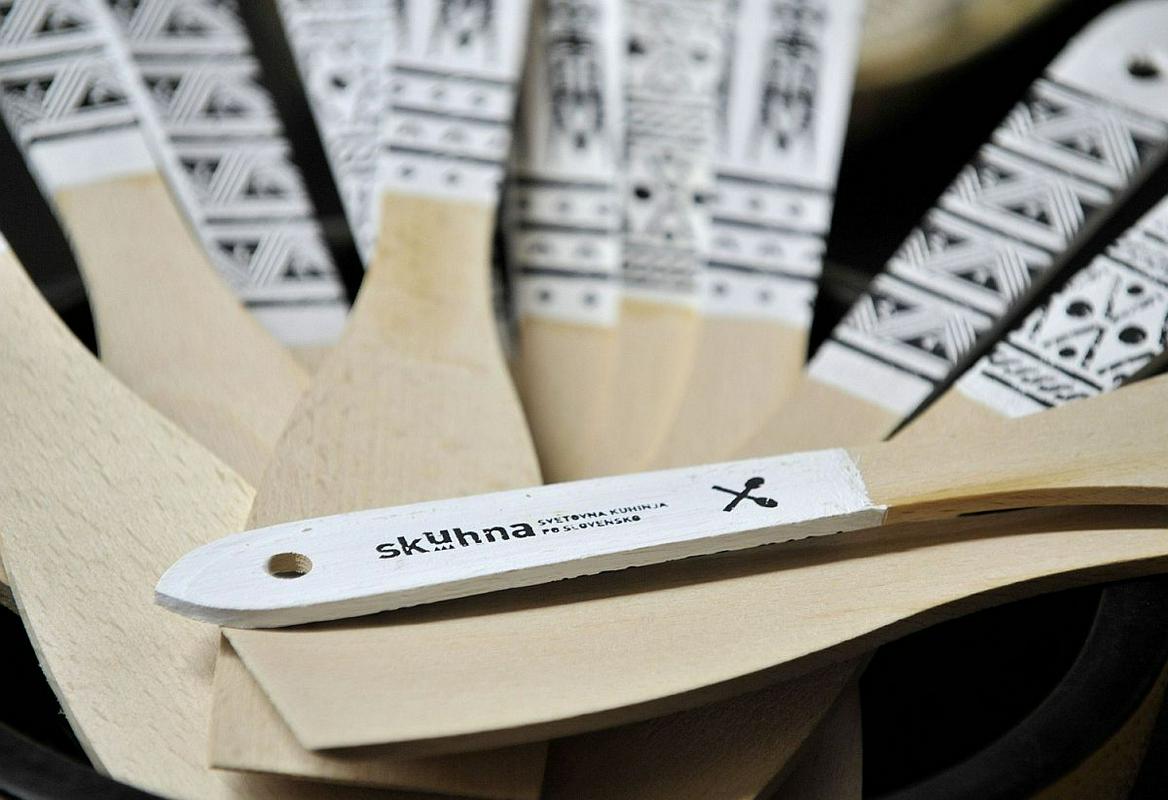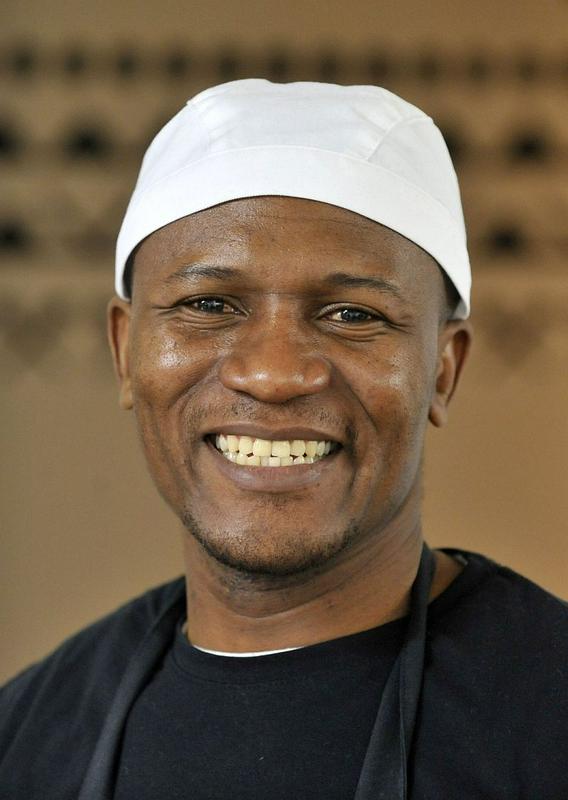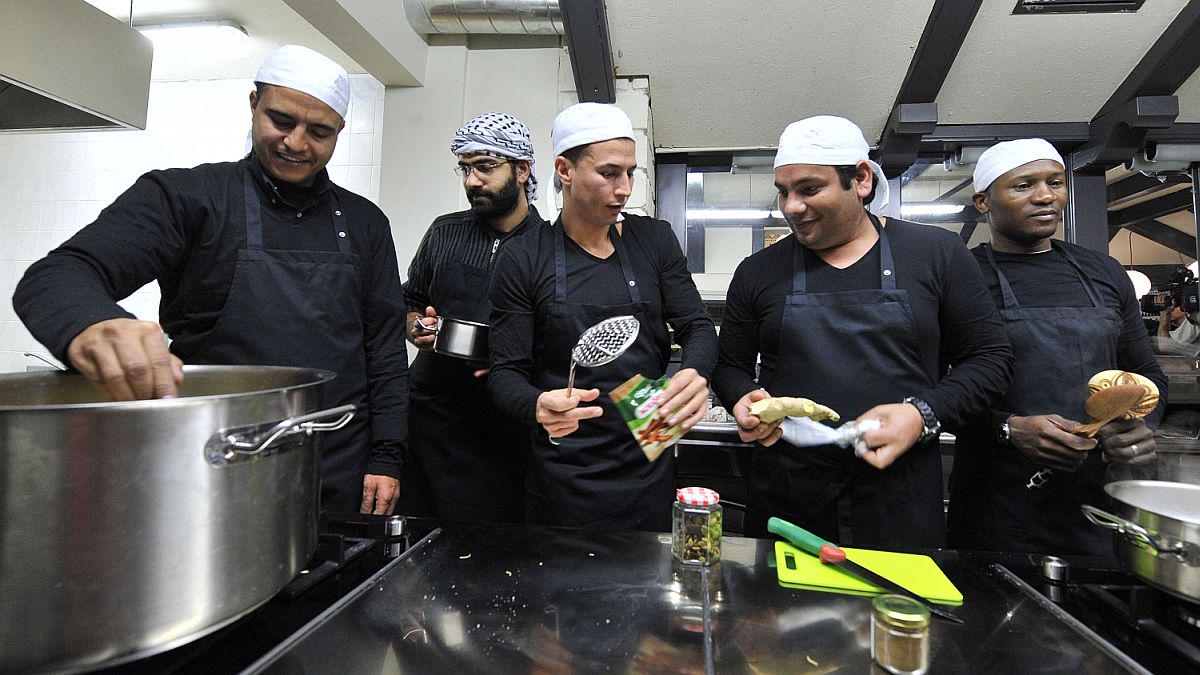
'Skuhna' is a result of a social management project that was launched a few months ago in order to bring together immigrants from different parts of the world, and improve living conditions for those who migrated to our country hoping to see a better future.
"The project, which has been runnig for a year, is aimed at better employment possibilities for immigrants," at a press conference said the project manager Max Zmani, who comes from Zimbabwe. According to Mr Zmani, immigrants are provided greater employment opportunities after they receive training. He added that all five cooks who work for 'Skuhna' knew to cook before arriving to Slovenia, so they only had to do intercultural training.
In a year’s time since the project was conceived, several working camps, cooking workshops and feasts were held, but the really hard part was finding workspace, he said.
The driving force of the project, which is a result of collaborative work between the immigrants and the Global and Voluntariat institutes, are the immigrants themselves. They prepare dishes which are a novelty in Slovene gastronomy, said the director of the Global institute Ms Teja Kuk. Among the dishes they make are Palestinian dumplings known as 'falafels', and Kenyan rolls known as 'samosas'.
Six migrants, who are all part-time workers and come from Kenya, Zimbabwe, India, Palestine, Egypt and Morocco, are involved in the project. Besides, more than 20 volunteers provided by the Voluntariat institute cooperated with the migrants throughout the year, completing over 100 hours of voluntary work, said the director of the Voluntariat institute Ms Urška Hartman.
According to the project leader Ms Luna Jurančič Šribar, the project team will strive for the development of social management in Slovenia, and encourage several ministries to occupy a more active role in the development project, as until now only the Ministry of Labour has been engaged in it, she said.
In future, the 'Skuhna' team wish to prepare takeaway meals, as well as to deliver meals to workplaces and homes. They also plan to organize birthday celebrations, for instance for children. Moreover, they want to carry on their work also after the financial resources by the Ministry of Labour and the European Social Fund are exhausted in August 2015.
The project was set up on 1 October 2012 and will be run by 1 August 2015.
D. S., translated by D. M.




















































